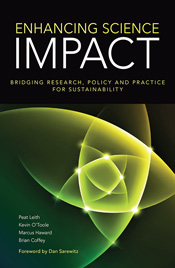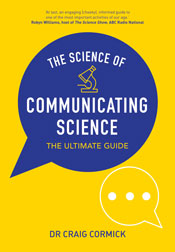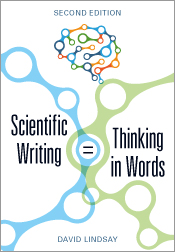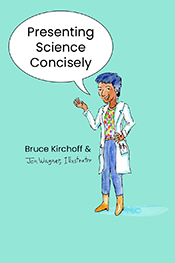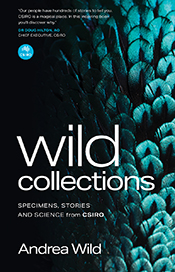Enhancing Science Impact
Bridging Research, Policy and Practice for Sustainability
By: Peat Leith, Kevin O'Toole, Marcus Haward, Brian CoffeyProvides principles and frameworks for integrating science into policy and governance.
Sustainability challenges blur the boundaries between academic disciplines, between research, policy and practice, and between states, markets and society. What do exemplary scientists and organisations do to bridge the gaps between these groups and help their research to make the greatest impact? How do they do it? And how can their best practices be adapted for a diverse range of specific sustainability challenges? + Full description
Enhancing Science Impact: Bridging Research, Policy and Practice for Sustainability addresses these questions in an accessible and engaging way. It provides principles explaining how research programs can work more effectively across the boundaries between science, society and decision-making by building social and institutional networks. The book suggests useful ways of thinking about a diverse range of problems and then offers five approaches to help embed science in sustainability governance. It will be an indispensable guide for researcher leaders, science program managers and science policy advisers interested in ensuring that applied research can meaningfully contribute to sustainability outcomes.
- Short descriptionNews
For an overview of the book, read Daniel Sarewitz's foreword here: (PDF 58.2KB).
Reviews
"I really do applaud the authors on taking a stand to create change for the better with this book. The authors are realistic in their expectations, with an understanding that each sustainability problem has its own set of unique challenges, thus boundary work and research planning needs to be tailored to each problem. One major point I will state is that this book is not a one-off read and reference. Instead, it is a resource that will reveal its value over time as an important planning tool. If scientists, research leaders, managers and policy advisors start approaching sustainability problems with such strategies, we should be on a more aligned track to better scientific outcomes for society at large into the future."
Ryan Baring, Australian Marine Science Bulletin 201(3), December 2017
"A very useful guide for researchers, research and science program managers and science policy advisers. It is thought-provoking and highlights the need for more attention to boundary work, its design and application to maximise the legitimacy and credibility of scientific knowledge and thereby its impact."
Sarah Connor, Australasian Journal of Environmental Management 26(2) 2019
"Given the rapidly evolving challenges in sustainability science and the increased need for boundary work, this book has tremendous value for offering tangible advice on framing and governing sustainability problems."
Erica Marshall, Austral Ecology 45(8), 2020
Details
Paperback | September 2017 | $ 59.95ISBN: 9781486305353 | 216 pages | 234 x 153 mm
Publisher: CSIRO Publishing
Illustrations
ePDF | September 2017
ISBN: 9781486305377
Publisher: CSIRO Publishing
Available from eRetailers
ePUB | September 2017
ISBN: 9781486305360
Publisher: CSIRO Publishing
Available from eRetailers
Features
- A highly readable and easily applicable guide for scientists, research managers and science policy advisers on how to create more effective outcomes from sustainability research
- Provides a conceptual model for improving the design and implementation of outcome-based science programs
- Break out boxes provide supplementary information, examples and simple method outlines
- Foreword by Daniel Sarewitz, Co-Director of the Consortium for Science, Policy & Outcomes and Professor of Science and Society, School for the Future of Innovation in Society, Arizona State University
Contents
ForewordAcknowledgements
Introduction
Chapter 1: Understanding the contribution of sciences to sustainability
Chapter 2: Issues, stakes and the framing of problems: creating an operating environment
Chapter 3: The structuring of problems: problem typologies
Chapter 4: The structuring of problems: exemplars and actions
Chapter 5: Boundary work: defining the elements
Chapter 6: Boundary work: elements as interventions
Conclusion
References
Index
View the full table of contents.
Authors
Peat Leith is a Senior Research Fellow at the Tasmanian Institute of Agriculture, University of Tasmania. His research focuses on social and institutional aspects of agriculture and coastal zone management, ranging from action research in climate change adaptation to scholarly research in science and technology studies.
Kevin O'Toole is an Adjunct Associate Professor in the School of Humanities and Social Sciences at Deakin University. His research focuses on comparative studies of policies and their application to sustainability and participatory governance in rural areas.
Marcus Haward is a political scientist specialising in oceans and Antarctic governance, coastal management and marine resources management. He is currently a Professor at the Institute for Marine and Antarctic Studies, University of Tasmania.
Brian Coffey is a lecturer in sustainability and urban planning at RMIT. His research focuses on the policy dimensions of sustainability, environmental governance and science-policy-practice relations. Prior to completing his PhD, Brian worked in a variety of public sector environmental policy and planning roles.

